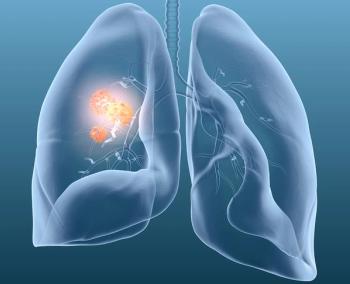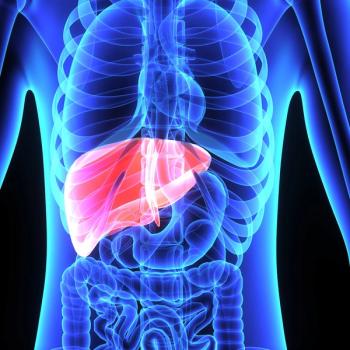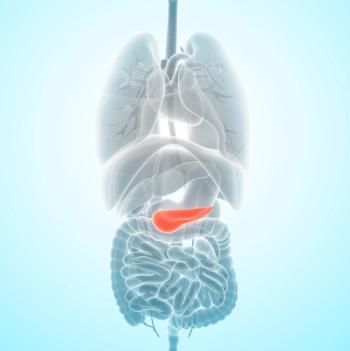
The investigational agent showed particularly strong efficacy in an ES-SCLC subgroup, with a chemotherapy-free interval of 90 or more days.

Your AI-Trained Oncology Knowledge Connection!


The investigational agent showed particularly strong efficacy in an ES-SCLC subgroup, with a chemotherapy-free interval of 90 or more days.

ODAC voted against the favorability of the agent in combination with dexamethasone and pomalidomide or bortezomib in multiple myeloma.

Particularly strong efficacy signals were observed in patients with non-squamous non–small cell lung cancer previously treated with PD-1 inhibition.

No dose-limiting toxicities or unexpected adverse effects occurred with carotuximab/apalutamide in metastatic castration-resistant prostate cancer.

Transarterial chemoembolization plus sorafenib did not significantly improve overall survival in advanced hepatocellular carcinoma vs sorafenib alone.

The confirmed objective response rate among 56 patients with extensive-stage small cell lung cancer was 87.5%, all of whom experienced partial responses.

The FDA lifted a clinical hold on a new drug application for tabelecleucel as a treatment for EBV-positive lymphoproliferative disease in May 2025.

Among 115 patients treated with avutometinib and defactinib, only 5 deaths occurred in the study, none of which were related to study treatment.

The 2 denosumab biosimilars previously received FDA approval for select patients with multiple myeloma, solid tumor bone metastases, and osteoporosis.

The FDA has waived the need for a botensilimab monotherapy arm in the phase 3 BATTMAN trial evaluating the combination in MSS metastatic colorectal cancer.

The addition of angiogenesis inhibition to immunochemotherapy for untreated extensive-stage small cell lung cancer did not significantly increase toxicity.

Patient-reported satisfaction was higher in patients with breast cancer treated with olanzapine vs those who underwent treatment with placebo.

Survival benefit was observed in heavily pretreated populations, including those who progressed after checkpoint inhibition and antibody-drug conjugates.

Prior BCMA-DT exposure was associated with a trend toward worse PFS outcomes and a lower likelihood of response in patients with multiple myeloma.

ATR04-484 showed inhibition of both methicillin-sensitive and methicillin-resistant Staphylococcus aureus bacteria strains, which are associated with rash.

The Oncomine Dx Express Test may generate results in as little as 24 hours when used on the Ion Torrent Genexus Dx Integrated Sequencer.

Among 287 patients across multiple solid tumor indications, YL201 had an objective response rate of 40.8%, with a disease control rate of 83.6%.
![No tracer-related adverse effects were observed in the study, with [18F]AIF-NOTA-PCP2 showing acceptable dosimetry in patients with head and neck cancers.](https://cdn.sanity.io/images/0vv8moc6/cancernetwork/566910aff802a39d5d1afef401d33f429392d845-1200x886.jpg?w=350&fit=crop&auto=format)
No tracer-related adverse effects were observed in the study, with [18F]AIF-NOTA-PCP2 showing acceptable dosimetry in patients with head and neck cancers.

The frequency and severity of adverse effects for the combination were consistent with expected safety findings for each individual agent.

Busulfan/melphalan elicited higher PFS among patients with ISS stage II or stage III disease, and melphalan-200 improved PFS in ISS stage I disease.

The expert panel discussed the efficacy observed with cilta-cel in patients with relapsed/refractory multiple myeloma.

Data supporting the FDA decision came from the phase 1/2 LINKER-MM1 trial.

The system showed enhanced diagnostic accuracy of intraoperative imaging, potentially improving the extent of resection while reducing residual disease.

Data from the HERIZON-BTC-01 trial evaluating zanidatamab in previously treated, unresectable HER2-positive biliary tract cancer support the decision.

The MALT1 inhibitor demonstrated a favorable safety profile and tolerability in findings from a phase 1 clinical trial presented at the EHA 2025 Congress.

A total of 35% of patients with fully resected metastatic lung osteosarcoma treated with OST-HER2 achieved 1-year event-free survival.

Tumor penetration of atigotatug in fuc-GM1-positive lung, liver, and bone lesions was observed in those with extensive-stage small cell lung cancer.

Larger multi-center trials could further elucidate the long-term outcomes of anlotinib plus immune checkpoint inhibition in this patient group.

Findings from the phase 2b ASCEND trial will be presented at the European Society for Medical Oncology Gastrointestinal Cancers Congress on July 2, 2025.

Twenty-two of 27 injected tumors across all patients with soft tissue sarcoma in the study showed complete or partial ablation.